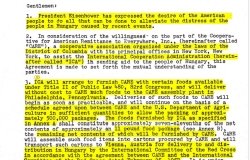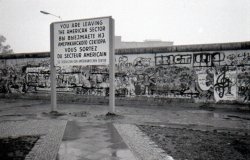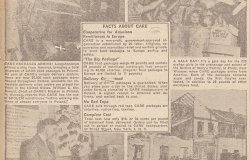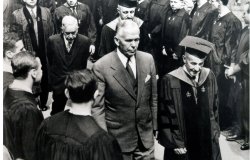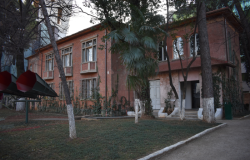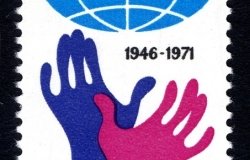<b>Live Webcast--</b> Cold War International Broadcasting: Lessons Learned
Overview
To watch the live webcast, follow the links in the See Also box to the right of this screen.
Moynihan Boardroom (6th Floor)
Woodrow Wilson Center
1300 Pennsylvania Ave, NW
Washington, DC 20004
with
A. Ross Johnson, former director, Radio Free Europe, and Public Policy
Scholar, Woodrow Wilson Center
R. Eugene Parta, Director of Audience Research and Program Evaluation, Radio Free Europe/Radio Liberty
Drawing on evidence presented at a Cold War International History Project-Hoover Institution conference, archival materials, and the panelists' personal experiences, this session will discuss the factors underlying the success of international broadcasting during the Cold War. Western broadcasts had a remarkable impact in the USSR and Eastern Europe. They reached mass audiences, as documented by traveler surveys at the time and confirmed by evidence from the formerly closed Communist archives. They reached key elites, both within the Communist regimes and among regime opponents. They influenced attitudes and opinions of the listeners. The key to the mass and elite audiences were the credibility and relevance of the broadcasts. RFE, RL, VOA, and BBC each had important but distinct roles, reaching different audiences; RFE and RL were "surrogates" – decentralized substitute home broadcasters. Government mechanisms were geared to providing public funding and oversight while ensuring management autonomy and journalistic independence.
Hosted By

Cold War International History Project
The Cold War International History Project supports the full and prompt release of historical materials by governments on all sides of the Cold War. Through an award winning Digital Archive, the Project allows scholars, journalists, students, and the interested public to reassess the Cold War and its many contemporary legacies. It is part of the Wilson Center's History and Public Policy Program. Read more
Thank you for your interest in this event. Please send any feedback or questions to our Events staff.
